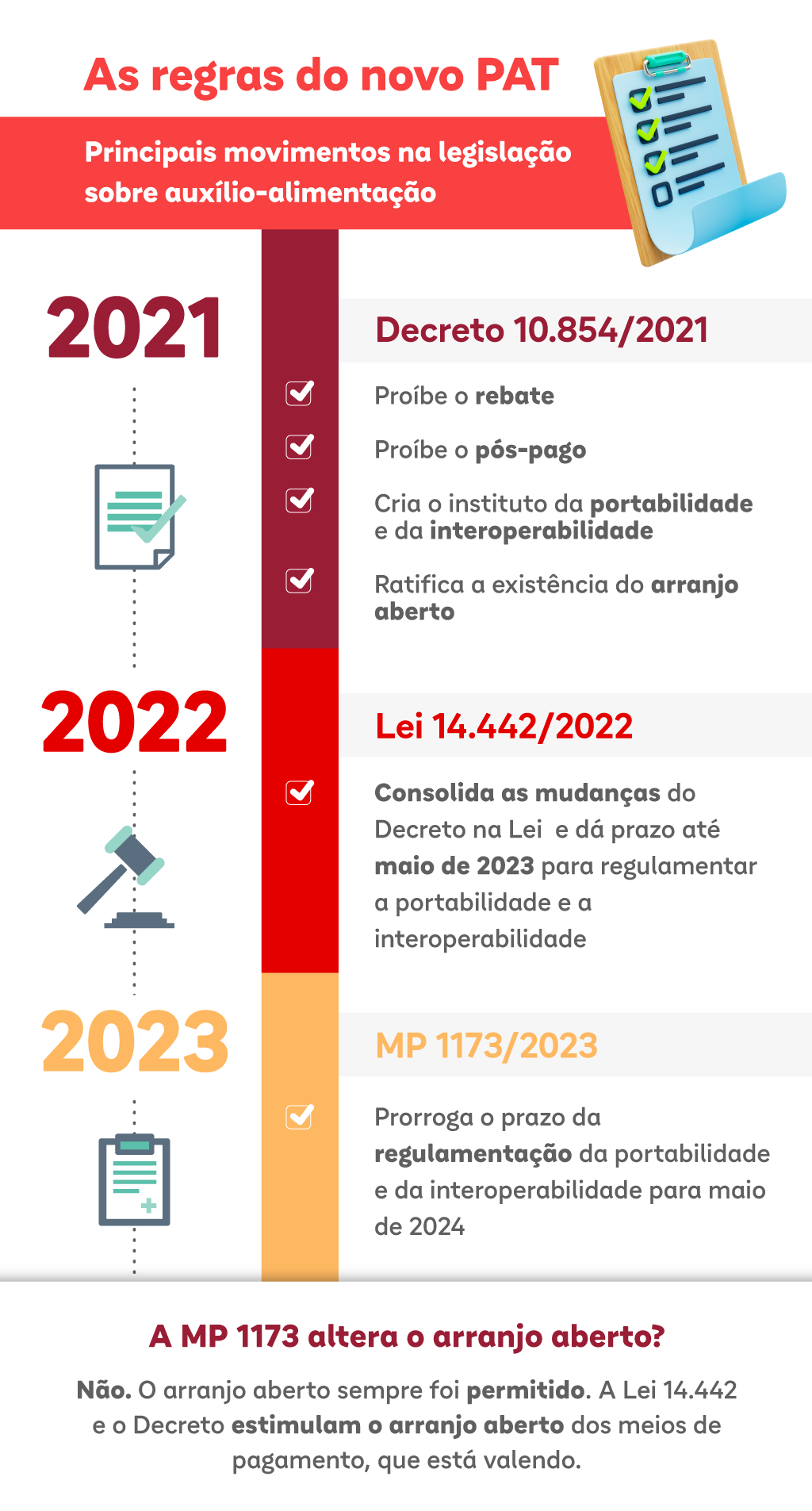In September 2022, the Law 14,442 changed the rules of the PAT (Worker's Food Program) and amended the original legislation, which created the program in 1976 to guarantee adequate nutrition for Brazilian workers.
Among these changes, the new PAT brought the end of the rebate (discount given by operators of food and meal vouchers to companies that adhere to the program) and post-paid payment for these vouchers, the encouragement of open payment arrangements (which increases the acceptance network for these vouchers) and the portability of food aid
The end of the rebate has been in effect since 2022. But other changes, such as portability and interoperability, still need to go through regulation to come into force.

What is this regulation?
A regulation is the step that comes after the approval of a law (such as 14,442) to create and publish the specific rules for this law to effectively come into operation, as a decree or an ordinance.
In the case of the new PAT, specific rules still need to be defined for portability — which will allow workers to choose which food and meal voucher company they want to use — and interoperability (so that the same machine accepts vouchers from different operators, for example ) effectively start working.
According to Law 14,442, this regulation should be made by May 2023, but this deadline was postponed because, in that same month, the federal government issued a provisional measure — MP 1173 — that seeks to extend the regulation deadline until May 2023. 2024.
Does MP 1173 change the rules of the new PAT?
No. This provisional measure only extends the deadline for the government to regulate Law 14,442. The changes to the PAT have already been approved by the National Congress.
Therefore, MP 1173 does not change what has already been defined regarding the open arrangement, the end of rebates, portability and interoperability — it only postpones the regulation of these last two points.
“Putting interoperability and portability into practice is important to stimulate competition in the food and meal voucher sector”, says Luiz Fernando Uehara, legal manager from iFood.
Increased competition also benefits restaurants and markets, since one of its effects is the reduction in fees charged to these establishments.
“When the regulation is completed, these changes will further favor workers with greater power to choose the benefit operator and lower rates, making food cheaper”, he concludes.


